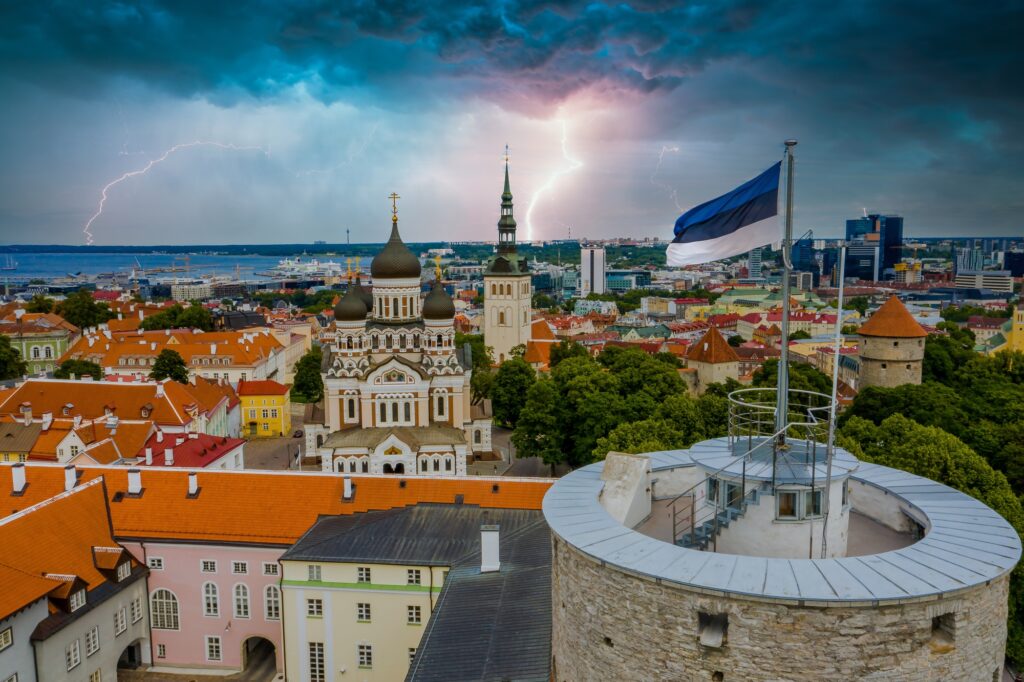Introduction
In February 2025, Estonia’s Chancellor of Justice, Ülle Madise, called for legislative changes to ensure that children born in Estonia to stateless parents automatically acquire Estonian citizenship. Under current law, such children only receive citizenship if at least one parent has legally resided in Estonia for five years. The Chancellor argues that this requirement leaves many children at risk of statelessness, contradicting Estonia’s international commitments to human rights.
The proposal aims to align Estonia’s citizenship laws with European norms, preventing new generations from being born without a nationality. If adopted, the change could impact thousands of families and address a long-standing issue of statelessness in the country.
Key Takeaways
✔ Current citizenship laws exclude children of stateless parents unless one parent has lived in Estonia for five years. ✔ Ülle Madise argues that this requirement violates human rights principles and should be removed. ✔ If adopted, the reform would grant automatic citizenship to all children born in Estonia, preventing statelessness. ✔ The change would align Estonia with international human rights obligations, particularly those under the United Nations and European Union frameworks. ✔ The government has yet to confirm whether it will implement the proposed changes, but the debate has gained significant public attention.
Current Legal Framework for Citizenship in Estonia
📌 How Do Children Currently Acquire Citizenship?
- By birth: If at least one parent is an Estonian citizen.
- By descent: If a child is born abroad to Estonian parents.
- By naturalization: Foreign nationals and stateless persons can apply if they meet residency requirements.
- For stateless children: Only eligible if at least one parent has legally resided in Estonia for at least five years.
📌 Why Is This a Problem?
- Some children born to stateless parents remain without citizenship.
- This disproportionately affects Russian-speaking communities and long-term residents who have not obtained citizenship.
- Stateless children face legal and social disadvantages, including restricted access to travel documents, education, and employment opportunities.
Proposed Changes to the Citizenship Act
📌 What Does the Chancellor Recommend?
- Automatic citizenship at birth for all children born in Estonia, regardless of parental residency duration.
- Removal of the five-year residency requirement for parents.
- Ensuring that Estonia meets its international obligations to prevent statelessness.
📌 Legal and Human Rights Considerations
- The United Nations and the European Court of Human Rights advocate for universal birthright citizenship to prevent statelessness.
- The European Commission has previously criticized Estonia for its restrictive citizenship policies.
- If Estonia implements this change, it would bring its laws closer to Western European norms.
Potential Impact on Stateless Communities
📌 Who Would Benefit?
- Children born to stateless parents, especially those from Russian-speaking and post-Soviet communities.
- Families who have lived in Estonia for years but remain stateless due to legal barriers.
- Future generations who would be protected from bureaucratic hurdles in securing nationality.
📌 Challenges & Opposition
- Some politicians argue that granting automatic citizenship may encourage more non-citizens to settle in Estonia without integrating.
- Nationalist groups oppose easing citizenship laws, citing concerns about national identity.
- The government has not yet confirmed whether it will move forward with the Chancellor’s recommendations.
Comparison with Other European Countries
📍 Germany – Offers citizenship at birth if at least one parent has lived legally in Germany for eight years. 📍 France – Grants automatic citizenship to children born in France if they remain residents until adulthood. 📍 Latvia & Lithuania – Similar to Estonia, but have gradually relaxed restrictions on stateless children. 📍 Sweden & Finland – Provide birthright citizenship to children of long-term residents.
If Estonia enacts the proposed change, it would join other European nations in reducing statelessness and removing barriers to integration.
What Happens Next?
🔹 Parliamentary Debate – Estonia’s lawmakers must decide whether to amend the Citizenship Act. 🔹 Public Discussion – Advocacy groups and international organizations support the reform, but opposition exists. 🔹 International Pressure – The EU and UN may push for reforms if Estonia fails to address the issue.
Conclusion
The Chancellor of Justice’s proposal to grant citizenship to all children born in Estonia could mark a major step toward reducing statelessness in the country. By removing the five-year parental residency requirement, Estonia would align its citizenship laws with international human rights standards.
As the government reviews the proposal, the debate highlights broader questions about national identity, integration, and the rights of stateless individuals. If implemented, this reform could impact thousands of families and strengthen Estonia’s reputation as a fair and inclusive nation.
#Estonia #StatelessChildren #CitizenshipReform #HumanRights #MigrationPolicy
Source – schengen.news










